Piindigen: Amplifying once-excluded theatre voices
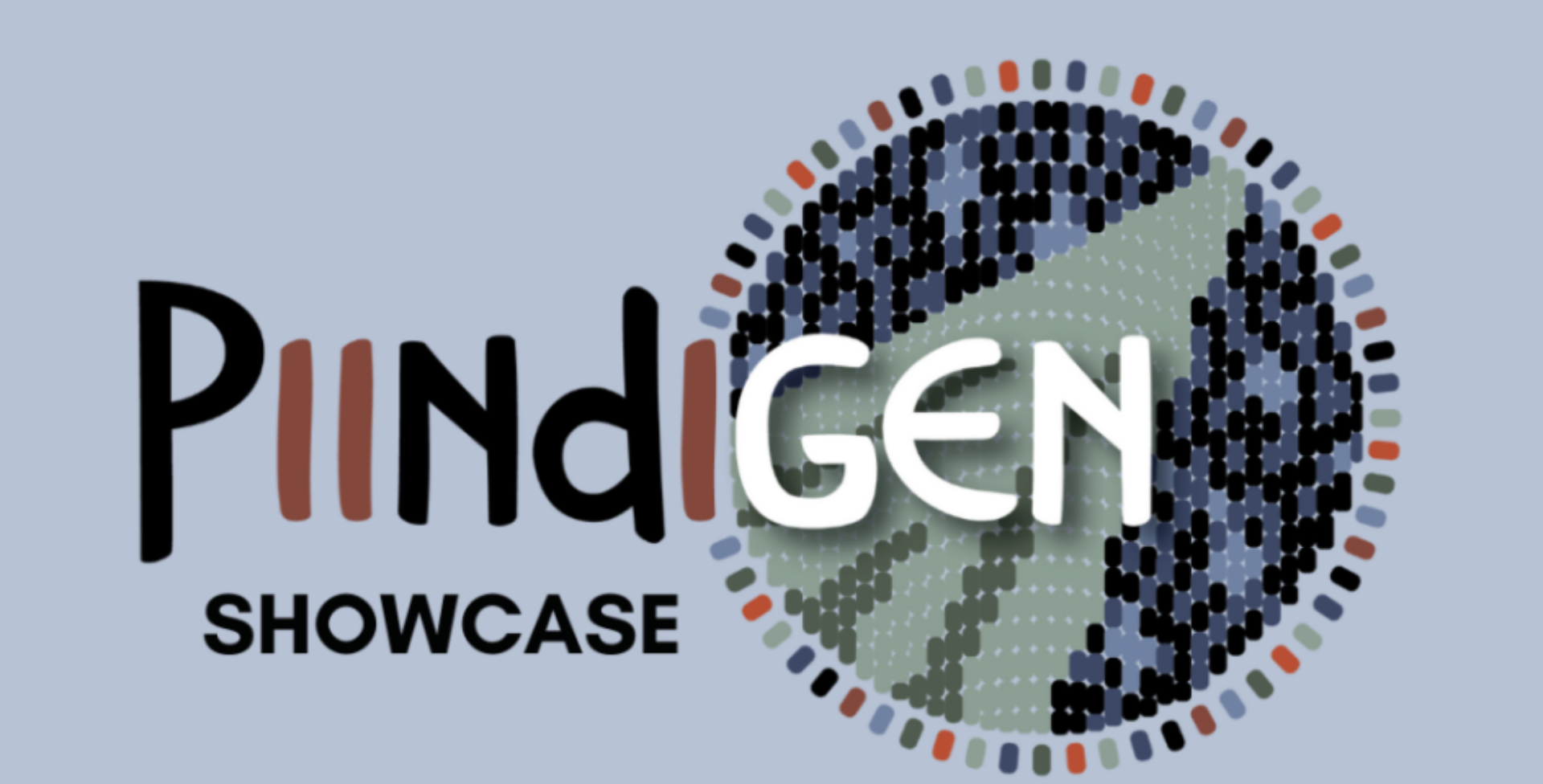
For two years, Theatre Aquarius’s Indigenous Piindigen program has actively sought out traditionally unheard storytellers to teach and showcase their work. The culmination of this year's program is being presented Saturday as part of the Brave New Works Festival.
The Brave New Works Festival, Theatre Aquarius’ annual new works showcase running this week closes Saturday with participants from the second session of Aquarius’ Piindigen program for young Indigenous artists presenting a collaborative work of devised theatre that is the culmination of their shared experience.
Jocelyn Prince, a Chicago-based Black American dramaturg has said, “one of the most political choices a theatre can make is who gets to tell their stories – and who does not. The personal is political.” Theatre Aquarius’ executive director Kelly Straughan has described the relationship between Aquarius and the Indigenous community as “genuine” and longstanding.
“We won’t stop trying to deepen the connection.”
One result of this commitment is that now two sets of emerging Indigenous artists have been able to develop in their craft through Piindigen, which means “welcome” or "come in" in Ojibwe. The 11-week program is designed to impart skills and insights into the world of professional theatre and build community among Indigenous artists.
When I visited with the program members last spring and spoke with Straughan and artistic director Mary Francis Moore last summer, it was universally felt that Piindigen had been a valuable endeavour but it was unclear then if or when it would run again.
The first session benefitted from kismet in the timing of federal financial initiatives in the post-pandemic recovery, the Theatre’s grant applications, and a “passionate commitment to mentorship” coming from the production of Beautiful Scars, a musical based on musician Tom Wilson’s memoir of the same name that had its world premiere at Aquarius in April 2024.
Happily, the program continued and a second group of Piindigen participants has just completed exploring their storytelling curiosities through a series of workshops and collaborative creation, led by this year’s program manager Danik McAfee, who is a director, educator and actor. Playwright and actor Carly Anna Billings returned for a second year as a program coordinator.
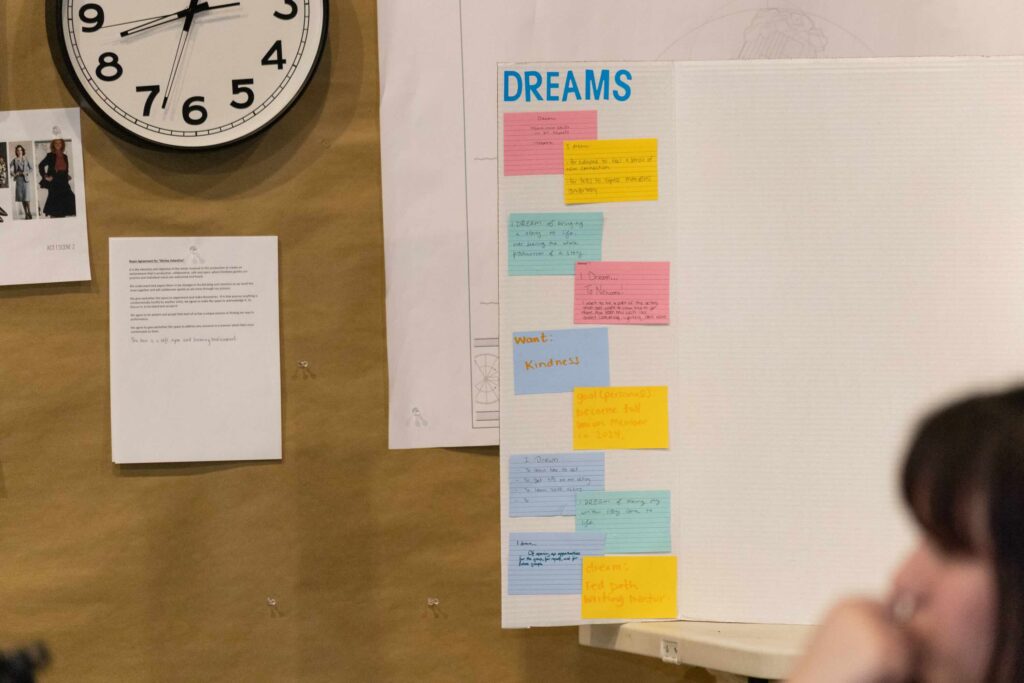
“One of the most beautiful aspects of the Piindigen program is the incredible diversity within the cohort ranging in age, experience, and artistic disciplines. Each participant brings a unique skill set and lived experience to the table, which enriches the learning and creative process for everyone involved,” McAfee said.
“This year, we’re fortunate to have 11 remarkable Indigenous artists in the program. Their motivations vary, some are reconnecting with their heritage, others are seeking new creative tools, and many are eager to build community and collaboration through the arts. Every Tuesday, we gather as a group and, over time, those sessions have become more than just workshops, they’ve become a space of genuine connection. What began as a group of participants has truly evolved into a family.”
The Piindigen program has retained its two-phase structure in its second time around, offering a series of workshops followed by a “creative incubator” in which participants apply new skills focused on collaborative storytelling to produce “an original piece of theatre.”
In phase one, McAfee curated a workshop series led by experienced facilitators that included Steven Gallagher (playwriting), Donna-Michelle St. Bernard (the creative process), Brandon Kleiman (set and costume design), Nicole Joy Fraser (drum songs and songwriting), Rebecca Cuddy (voice and performance), and Raymond RJ Brown (storytelling through movement).
This year’s devised theatre performance promises to “weave together movement, dialogue, poetry, and themes of identity, love, injustice, and reclamation.” The collaborative piece combines the teachings received by the Piindigen participants and their own authentic voices. “From the writing and directing to the choreography and prop building,” McAfee said, “the entire process has been Indigenously led.”
For far too long Indigenous voices were excluded from opportunities in the performing arts by expensive programs geared toward a privileged few, McAfee said.
“What truly sets Theatre Aquarius apart is their active dedication to decolonizing their practices and reimagining what theatre can be. They’re helping shift the perception of our industry, showing that theatre is not a hierarchical art form, but one that brings people together and uplifts all voices,” McAfee said. “The entire team at Theatre Aquarius has embraced the Piindigen program, and we are so grateful to share space, resources, and vision with them.”
Piindigen offers high-quality skills development in a safe and inclusive space, said McAfee.
“Programs like this are vital for restoring representation, empowering voices, and ensuring that Indigenous artists are seen, heard, and celebrated.”
Filmmaker and arts educator Shane Pennells, one of the co-facilitators of last year’s Piindigen, said he’s been waiting many years for a program like Piindigen or a Indigenous-focused production such as Beautiful Scars.
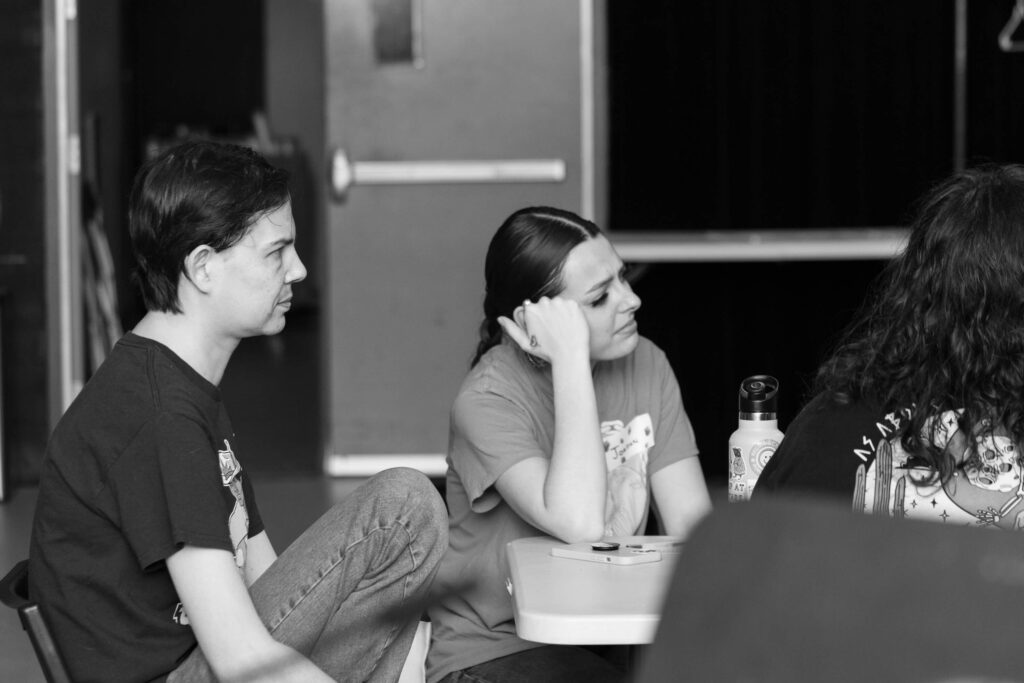
“For me, this has been years of hoping and working towards making space in the community for something like Piindigen and the hope that Indigenous voices will finally get the legitimacy and respect they deserve. It's definitely been worth the wait and I can't wait to see where the new generation of Indigenous artists takes things.”
Participants have ranged from high school students to working musicians to those in professional theatre. Two who spoke to HCM said they found connection, confidence, shared community, permission, and validation in the Piindigen program.
“One of the big things is how we all expressed frustration and sometimes doubt around how ‘authentic’ we are. Sometimes we feel like we aren't ‘Native enough,’ and like other people are going to judge us as not part of the group,” said first-year participant Ryan Sero. “This is almost like imposter syndrome for your own heritage and culture. But it sort of feels good knowing that a lot of other people struggle with that, too.”
Abby Keays, also in the first cohort, echoed this sentiment: “The best thing that I have come out of this program with is the mindset that, it doesn't matter ‘how Indigenous I am.’ I am Indigenous. And that is enough.”
Keays says Piindigen created space to be comfortable to learn.
“It's sometimes hard to admit that I don't know everything about my culture, especially when some could expect that of me, but in this program I have the opportunity to learn and grow with others of all different indigenous roots.”
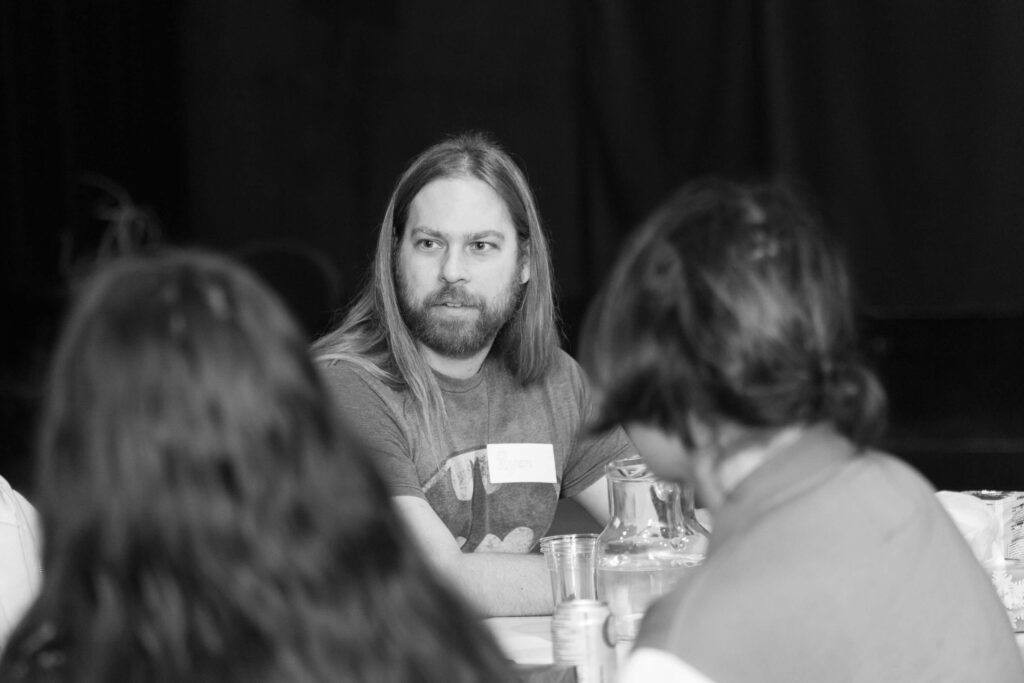
Sero agreed: “One of the big things for me is just to hear a lot more of how other people feel about being Indigenous and being artists and just existing in a bunch of different ways. Each person brings their own perspective and their own hang-ups and proud moments of who we are. It's helpful to hear that stuff sometimes.”
Piindigen’s gift was catharsis through talking with other Indigenous people, he says.
“There's encouragement, growth, and sometimes just a bunch of people who can listen to me on my own terms, and that lets me relax a little bit about some of those hangups I've described.”
Last year’s Brave New Works performance captured the playful and joyous sense of humour that pervaded the participant group itself in the form of a grumpy dragon/serpent named Francine. The performance also integrated elements of Indigenous mythology and the supernatural, banter at a local coffee shop, and the need for environmental stewardship of the Hamilton waterfront.
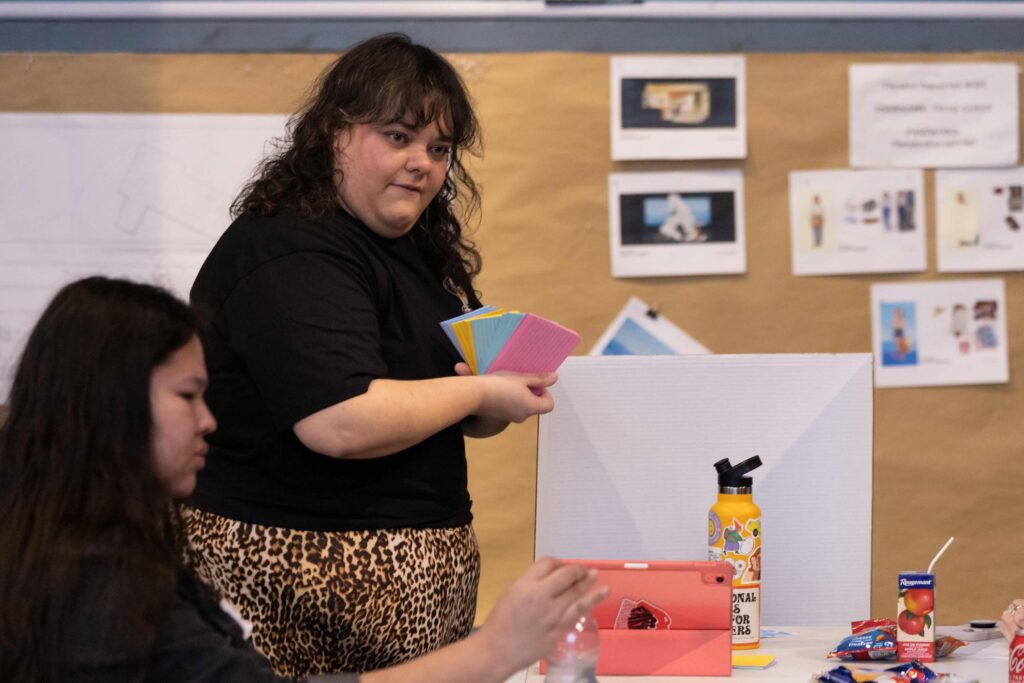
NEED TO KNOW
Piindigen Showcase at The Brave New Works Festival
May 31, 7 p.m., Studio Theatre
Theatre Aquarius
190 King William St., Hamilton
More information is here
Free admission













